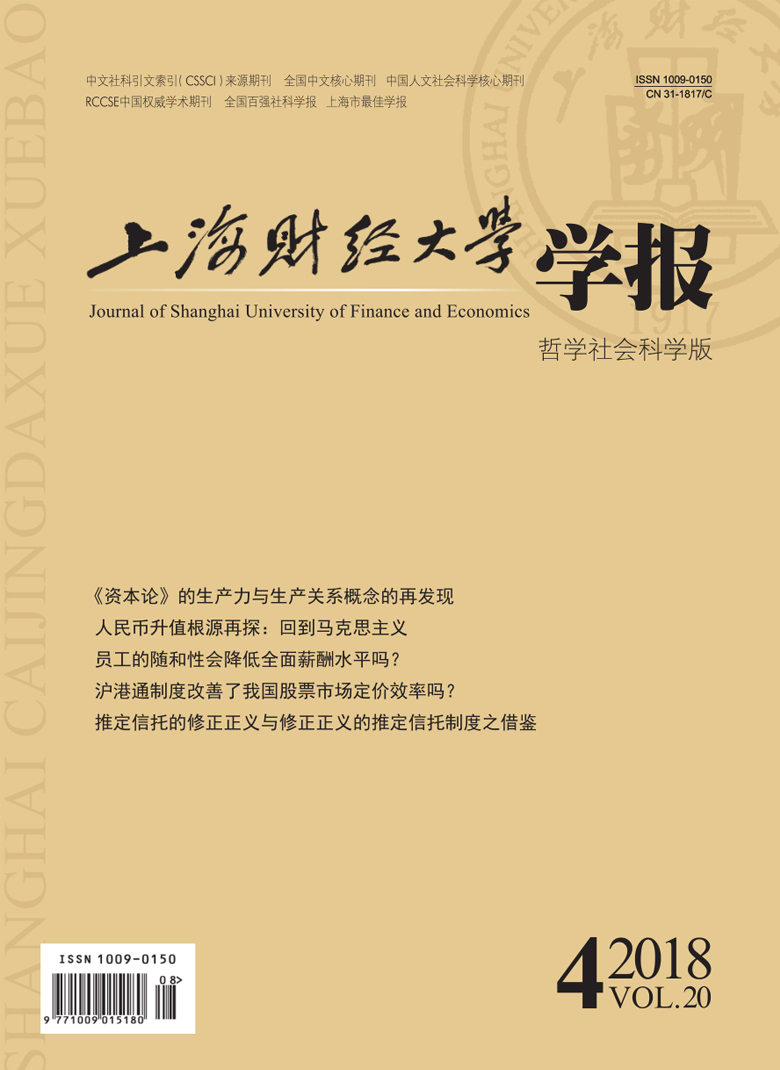The long-term appreciation of RMB is rooted in the improvement of China’s relative labor productivity. On the basis of using and comparing the Marxist exchange rate theory deduced from Marxism Labor Value Theory and the Balassa-Samuelson model, we try to explore the inherent logic of exchange rate changes affected by relative labor productivity, which is different from the traditional research perspective. According to the classification and the related data of trade and non-trade sectors, the dynamic panel model is used to study the effects that relative labor productivity of China and its major trading partners, and relative productivity of any two sectors within each economy entity have exerted on RMB exchange rate. There are several conclusions: First, the improvement of labor productivity is the fundamental motive force for a country’s currency appreciation. The improvement in labor productivity, whether it is the trade sector or the non-trade sector, can steadily increase the exchange rate of a country, hence justifying the long-term appreciation of RMB and its magnitude. Second, due to the factors like the development stage, the economic structure, the exchange rate system, the Balassa-Samuelson effect is not significant in China and in the sample of selected economies, but we find that the Marxist exchange rate theory can better explain the appreciation of the RMB, therefore using such theory. Third, basic variables of one country, which include the degree of openness and the growth rate of GDP per capita, will also have different degrees of influence on exchange rate changes. Therefore, high-quality economic development is the key to enhancing currency value, attracting international capital and improving international competitiveness. In this process, we should speed up the transformation of the way of economic development and promote full employment. We should also ensure the simultaneous adjustment of wages and labor productivity while promoting the free flow of labor and capital. It is also necessary to deepen the market-oriented reform of the education and medical departments and reduce market monopolies in railway, real estate, postal and other industries so as to promote reasonable adjustment and effective formation of exchange rates. Besides, in order to increase openness and strengthen communication and integration between China and the world, we should apply effective communication mechanisms to remove various trade barriers and reduce trade disputes.
 / Journals / Journal of Shanghai University of Finance and Economics
/ Journals / Journal of Shanghai University of Finance and EconomicsJournal of Shanghai University of Finance and Economics
LiuYuanchun, Editor-in-Chief
ZhengChunrong, Vice Executive Editor-in-Chief
GuoChanglin YanJinqiang WangWenbin WuWenfang, Vice Editor-in-Chief
Re-exploration of the Roots of RMB Appreciation: Back to Marxism
Journal of Shanghai University of Finance and Economics Vol. 20, Issue 04, pp. 29 - 45 (2018) DOI:10.16538/j.cnki.jsufe.2018.04.003
Summary
References
Summary
Cite this article
Li Zilian, Cui Ningxin. Re-exploration of the Roots of RMB Appreciation: Back to Marxism[J]. Journal of Shanghai University of Finance and Economics, 2018, 20(4): 29-45.
Export Citations as:
For




 8135
8135  10899
10899

